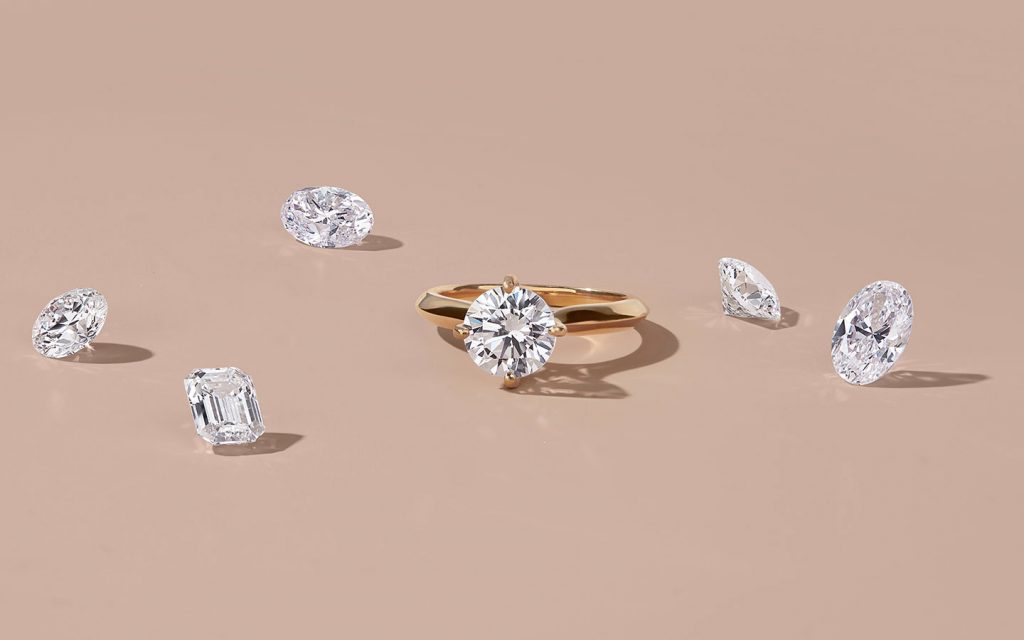
Lab-grown diamonds have revolutionized the jewelry industry, offering ethical, sustainable, and cost-effective alternatives to mined diamonds. However, when choosing a lab-grown diamond, certification plays a vital role in ensuring quality and authenticity. Two leading organizations for diamond certification are IGI (International Gemological Institute) and GIA (Gemological Institute of America). This article explores the key differences between IGI vs GIA lab-grown lab diamonds, guiding you to make an informed decision.
Table of Contents
ToggleWhat Are Lab-Grown Diamonds?
Lab-grown diamonds are created in controlled environments using advanced technological processes that replicate the natural diamond formation. These diamonds possess the same physical, chemical, and optical properties as mined diamonds. However, the certification of lab-grown diamonds significantly impacts their perceived value and quality. Understanding the distinctions between igi vs gia lab grown helps ensure you receive the best diamond for your investment.
IGI Certification for Lab-Grown Diamonds
The IGI has been certifying diamonds for decades, including lab-grown varieties. IGI is renowned for its accessibility and comprehensive grading system. IGI-certified lab-grown diamonds often come with detailed reports covering the diamond’s carat weight, color, clarity, and cut. Many retailers favor IGI for its quicker turnaround times and clear, concise documentation.
When comparing IGI vs GIA lab-grown lab diamonds, IGI certification is often seen as more consumer-friendly. The IGI offers transparency and reliability, which appeals to those prioritizing affordability without compromising quality.
GIA Certification for Lab-Grown Diamonds
GIA is widely regarded as the gold standard in diamond grading. While GIA initially focused on natural diamonds, it has expanded its services to include lab-grown diamonds. GIA-certified lab-grown diamonds undergo rigorous testing to ensure accuracy and precision. The grading reports are highly detailed and emphasize the diamond’s origin as lab-grown.
In the debate of IGI vs GIA lab-grown lab diamonds, GIA certifications are often preferred for their prestige. However, the process may take longer, and GIA reports for lab-grown diamonds sometimes lack the depth found in their natural diamond certifications.
Key Differences Between IGI and GIA Certification
When choosing between IGI vs GIA lab-grown lab diamonds, several factors come into play. IGI is known for its consumer-focused approach, while GIA offers unmatched reputation and credibility. For instance, IGI reports often highlight finer details, such as fluorescence, which some buyers find valuable. GIA, on the other hand, ensures a rigorous grading standard that appeals to those seeking top-tier certification.
Another key difference is cost. IGI-certified lab-grown diamonds are typically more affordable, making them an attractive option for budget-conscious buyers. In contrast, GIA certifications may command higher prices due to the organization’s prestige.
Which Certification is Best for Lab-Grown Diamonds?
The choice between IGI vs GIA lab-grown lab diamonds ultimately depends on your priorities. If you value affordability and detailed reports, IGI certification may be the ideal choice. However, if you prefer globally recognized credibility and rigorous testing, GIA-certified lab-grown diamonds are a strong contender.
Both IGI and GIA provide reliable certification, ensuring the diamonds you purchase meet stringent quality standards. Considering your budget, preferences, and the specific characteristics you desire in a diamond will help determine the best option.
Why Certification Matters for Lab-Grown Diamonds
Certification assures buyers of a diamond’s authenticity and quality. In the context of IGI vs GIA lab-grown lab diamonds, certification also provides insights into a diamond’s origin, ensuring transparency and ethical sourcing. Without proper certification, distinguishing a high-quality lab-grown diamond from a lower-grade alternative becomes challenging.
Certification also impacts resale value. While lab-grown diamonds typically have a lower resale value than natural diamonds, having a recognized certification like IGI or GIA ensures you can confidently market your diamond if needed.
Discover the sparkle at novitadiamonds.com Your Trusted Diamond Jewelry. Explore our exclusive diamond jewelry collection, special offers, and more. Visit now and find your perfect piece of elegance.
Final Thoughts: IGI vs GIA Lab Grown Lab Diamonds
Choosing between IGI vs GIA lab-grown lab diamonds can be a daunting task, but understanding their unique attributes simplifies the process. IGI certification offers affordability and accessibility, making it popular among buyers seeking quality at a reasonable price. Conversely, GIA certification provides unparalleled reputation and meticulous grading standards, appealing to those who prioritize prestige and precision.
Ultimately, both IGI and GIA certifications uphold the integrity of lab-grown diamonds, allowing you to enjoy the beauty and brilliance of these sustainable gems with confidence. Whether you opt for IGI or GIA, ensuring your lab-grown diamond is certified is essential for peace of mind and satisfaction.
